A person’s addiction has far-reaching effects beyond their immediate environment. It impacts their personal well-being, families, friends, workplace, and society at large.
The emotional toll of addiction can lead to feelings of:
On a broader scale, addiction can contribute to increased healthcare costs, higher crime rates, and significant social welfare challenges. These factors and more highlight the importance of access to treatment and aftercare services for those battling addiction.
Comprehensive recovery support is crucial to addressing this multifaceted crisis. SRC programs focus on many important factors and services that are evidence-based to provide hope for life after treatment.
Effective recovery programs can encompass a wide range of services, including:
SRC, in particular, believes in a person-centered approach that focuses on the individual client’s past and present, emphasizing intentional goal setting for future success.
One pivotal component of long-term recovery is sober living programs. Sober living programs can look different depending on how they are organized.
Everyone’s experience in recovery is different. Each person might find that one type of sober living program works better than another, but their importance is paramount when it comes down to long-lasting recovery and wellness after addiction treatment.
These communities provide a substance-free environment where residents can:
Support systems following treatment are especially important to help people find a sense of understanding from others and companionship while entering a new phase of life, built on wellness and recovery.
Sober living homes are designed to provide a supportive environment for people in recovery from substance use disorders. These residences offer a safe space where people can focus on their recovery while gradually reintegrating into daily life.
The primary purpose of sober living programs is to support the transition from intensive treatment settings to independent living. This transitional period is crucial for sustaining the progress made during treatment and for developing the skills necessary to maintain long-term sobriety.
Peer support is a crucial component of sober living programs. Finding commonalities between peers can be integral for forging new relationships after SUD treatment when individuals can be working to create new lives built on wellness.
Here is how it is beneficial:
The sharing of experiences among peers in sober living promotes understanding and empathy. People in recovery often find solace and strength in knowing they are not alone in their struggles. This can foster a deep sense of connection and belonging.
Peer support creates a system of accountability within the sober living programs. Residents encourage and support each other in maintaining sobriety.
This mutual accountability can be a powerful motivator, as individuals are less likely to relapse when they know their peers are following and supporting their recovery journey.
Peer support provides opportunities to learn from each other’s experiences. Working through issues with the help of others that can understand based on experience can be extremely powerful.
It helps build a strong foundation for long-term recovery as individuals share:
Sober living programs cultivate a sense of community where people feel safe and supported. Peer support fosters a positive and encouraging environment. This can reduce feelings of isolation and loneliness often experienced by people in recovery.
The framework of a sober living environment is based on principles that promote recovery, growth, and independence.
Among these principles are:
Sober living programs emphasize personal responsibility and independence. This is especially important as residents focus on meeting goals needed to leave the sober living program and enter into life independently.
Residents are expected to:
This gradual assumption of responsibilities prepares them for life outside the sober living environment.
Sober living focuses on developing essential life skills that are crucial for successful reintegration into society.
These skills help residents in areas such as:
Much like the personal responsibilities given to clients during a sober living program, these life skills are essential for exiting the program and living successfully.
Sober living programs facilitate connections to external support systems, such as:
This helps residents develop a strong support network outside the sober living environment.
Sober living programs help create a comprehensive aftercare plan. This may include:
The goal is to provide the tools and support necessary to maintain sobriety and thrive independently.
Sober living shares some similarities with other types of housing designed for people in recovery. Most importantly, sober living prioritizes a commitment to healing that is based in providing education and practice for life outside of treatment.
However, it is distinct in several key ways, including:
Unlike permanent supportive housing, which offers long-term accommodations for individuals with chronic conditions, sober living is intended as a transitional phase.
Residents typically stay for a defined period. This can range from a few months to a year, depending on their progress and needs.
Sober living programs have strict policies regarding substance use. This focus on sobriety sets them apart from other forms of supportive housing, which may cater to individuals with varying levels of substance use issues.
For many individuals in recovery, having an established routine can be immensely beneficial. Sober living homes impose specific rules, guidelines, and expectations to support recovery.
This structure helps residents develop routines and responsibilities. It contrasts with less structured housing options that may not offer the same level of oversight.
Sober living programs offer a multitude of benefits for individuals on the path to recovery. Some of the most common among them include:
Sober living enhances physical health by eliminating the harmful effects of alcohol and drugs. SUD can lead to numerous health issues, including:
Abstaining from these substances allows the body to heal and regain its optimal functioning. As a result, individuals can experience a variety of health benefits, including increased energy levels, better sleep patterns, and improved physical well-being.
These benefits can manifest in different ways for different people; in particular, it is important to be patient with the process of treatment and focus on a better future life.
When individuals find themselves better equipped to handle stress and make sound decisions, they can experience newfound confidence and peace. Over time, this leads to a more balanced and fulfilling emotional life. This fosters personal growth and resilience.
The structured support found in sober living programs addresses many factors that contribute to relapse, such as:
By mitigating these risks, sober living programs offer a significantly better chance of achieving long-term sobriety.
The benefits of sober living programs extend beyond the individual to positively impact families and communities. For families, the knowledge that a loved one is in a safe, supportive environment can alleviate much of the stress and anxiety associated with addiction.
Sober living programs can improve family dynamics by improving behavior, stability, and responsibility among people in recovery.
Communities also reap the benefits of sober living programs. Reduced relapse rates can contribute to:
Additionally, as residents of sober living homes gain employment and become more self-sufficient, they contribute positively to the local economy and community vitality.
Sober living programs improve quality of life in various ways. The physical, emotional, and social benefits contribute to a more fulfilling and balanced existence.
Without the burden of SUD, individuals often discover a renewed sense of purpose. Being able to fully experience life without addiction makes life more meaningful and satisfying.
Sober living programs occupy a unique position within the continuum of care for addiction recovery. The continuum of care refers to the comprehensive range of services available to individuals at various stages of their recovery journey.
This continuum typically includes:
Different programs will be more or less important to each client, but it is vital to have as many options to choose from as possible to build a personalized plan for recovery. At SRC, we are focused on providing a person-centered treatment plan that is evidence-based and compassionate.
Seeking treatment can be scary, but leaving treatment can be scarier. It is vital to be a part of a supportive program that is as invested in your recovery in sober living as you are. SRC is here to help our clients each step of the way from the initial intake to life outside of treatment.
SRC offers a wide range of programs tailored to individual needs. We are focused on providing the most modern and compassionate care we can through our team of professionals.
The most common programs are:
A PHP offers a highly intensive and structured treatment. It is suitable for those requiring more care than outpatient services but not inpatient care.
Our PHP program typically involves several hours of therapy and group sessions each day; however, it allows clients to return home in the evenings.
An IOP is less intensive than PHP. However, it provides a higher level of care than traditional outpatient services. IOP programs typically involve several hours of therapy per week, allowing individuals to maintain employment or school responsibilities while receiving structured treatment.
These programs typically involve individual or group therapy sessions and may include medication management.
Sober living programs help develop the skills and confidence necessary to successfully reintegrate into society.
Below are some important considerations:
Unlike other forms of treatment, sober living programs offer a more realistic setting where individuals can begin to face everyday challenges.
This gradual exposure helps them build resilience and develop coping strategies. As a result, the eventual transition to full independence becomes less overwhelming.
Many sober living programs encourage residents to participate in community-based activities. This fosters a sense of purpose and connection to the broader society.
Volunteering helps residents develop:
At SRC, we strive to create a world where people can access the support they need, regardless of their location or financial situation.
By providing volunteering opportunities, individuals can channel their energy into something productive outside of themselves.
Sober living programs often utilize a step-down care model. The level of supervision and structure in these programs decreases as residents progress in their recovery. This model allows individuals to build confidence and self-efficacy incrementally.
As residents demonstrate stability and adherence to recovery principles, they gain more autonomy. As a result, they are prepared for the responsibilities of independent living.
This phased approach reduces the risk of relapse by ensuring that individuals are ready for each new level of independence.
Sober living programs encourage residents to set and pursue meaningful personal goals. These goals may pertain to career, education, fitness, or hobbies.
Achieving these goals provides a sense of accomplishment. It also reinforces the benefits of a sober lifestyle. Regular goal-setting sessions and progress reviews help keep residents focused and motivated. This fosters a forward-looking mindset essential for successful reintegration.
Therapeutic and recreational activities during sober living programs help people:
These activities offer alternative outlets for stress relief and personal expression. Engaging in recreational activities also improves the overall quality of life. This makes the transition to independent living more fulfilling.
Sober living programs, while providing essential support, are not without challenges. Some of the most common among them include:
One of the core tensions in sober living is finding the right balance between autonomy and support. Residents need the freedom to make choices and develop independence.
However, they also require guidance and support to maintain sobriety. Establishing clear boundaries and expectations is essential to navigate this delicate balance.
Transitioning from a life centered around substance use to one of sobriety can be challenging. People may struggle with boredom and finding constructive ways to spend their leisure time.
Sober living homes can address this by providing opportunities for:
Financial stability is crucial for long-term recovery. Many residents face challenges related to employment, budgeting, and managing finances.
Sober living homes can offer financial literacy workshops and job placement assistance to counter this.
Residents may face external pressures and temptations from friends, family, or the community. Sober living homes can provide support in developing strategies to resist these pressures and maintain sobriety.
While structure is essential, it’s important to balance house rules with individual needs. Rigid rules may lead to resentment and isolation, while too much leniency can compromise the sober living environment. Finding the right balance is crucial for creating a supportive and effective community.
Sober living programs are instrumental in the journey toward sustained recovery from substance abuse. These supportive environments provide the structure, community, and resources necessary for people to rebuild their lives.
Sober living programs significantly enhance the chances of long-term sobriety by:
At SRC, we understand that recovery is a unique journey for each individual. Everyone has their own needs, goals, and experiences.
Our comprehensive approach to care incorporates:
Our outpatient programs offer flexible options to meet varying needs. Whether you require intensive treatment or ongoing maintenance, SRC is committed to providing the care you deserve.
If you or a loved one is seeking support in your recovery journey, SRC is here to help. Our dedicated team of professionals is committed to providing compassionate and effective care. Together, we can build a brighter future free from the grip of addiction.



